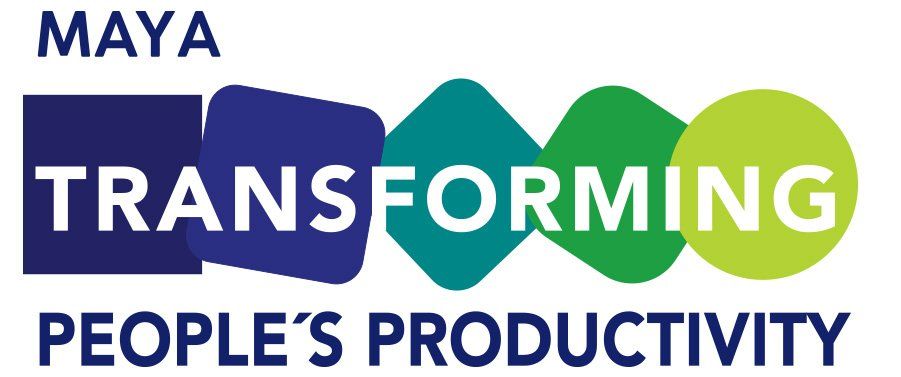What to Expect From a Birkman Assessment
Everyone talks about teamwork being key , yet to accomplish it might not be as easy as it actually is
When all parts of a team are working together smoothly, it can feel like your company is floating on a cloud of pure productivity. But, as I’m sure you’ve noticed, that’s easier said than done.
To help understand different personality types, behavior's and motivations and offer helping hands instead of in-office bickering, experts offer a solution: the Birkman Assessment.

What is a Birkman Assessment anyway?
First up: the Components Analysis.
The Birkman Assessment is ONE ASSESSMENT that tells you all about yourself through a “components analysis”: it examines your most productive behaviors, your unrevealed needs and motivations, and if those are not met, then stress behavior's will be revealed and we will understand why we behave the way we behave.
Second, we get into your personal traits.
In order to accurately analyze and predict how you work in a team, we need to know you. We use two drivers to check out how you think about yourself and how you interact with the world.
To help you gain insight into your own self image, you’ll undergo the
Challenge
portion of this assessment. What challenges do you face? How do you face them?
Freedom checks out how you prefer to live. Do you find your freedom and security in the conventional, or do you feel constrained unless you’re experiencing the non-traditional?
Through these different lenses, we’ll get an idea of what your interests really are. Where you feel inspiration, passion, and drive, and also what kinds of tasks make you want to just lay your head on your desk and wait out the clock. That helps us analyze you in the light of the career paths that you show the most interest in, helping you apply your talents where they make the most impact in an organization.
In a team, personality type matters.
The
Lifestyle Grid
examines personality type. Are you introverted, or extroverted? People-oriented, or task-oriented? For a team to be successful, we’ve found you need all four types of personalities to be successful: from the
executor
and the
communicator
to the
processor
and the
designer/visionary/strategist.
Though these personalities are wildly different and may have trouble initially seeing eye to eye, each one forms an essential component of a holistic team - and each one is equally as necessary. Divisions can form when one personality type grates against the next, but realizing that everyone is needed can help team members find their perfect placement and help each other build a workflow that works for them.
Once we show you what personality type each member of your team has and who you work best with, you can study the
balance
of your team. If new vacancies arise, you can use this to your advantage, complementing the existing members of your team and achieving that perfect balance - without feeling like you’re on a tightrope.
Last but not least, workstyles help you figure out how you work within your team.
Everyone has leadership capabilities. The trouble lies in figuring out your leadership style and the motivations behind it. Our assessment does just that, for every member of your team. The Birkman Assessment filters through all the seemingly endless factors that go into what drives a person, and helps each person find their perfect fit within their team. Ultimately, this leads to happier employees, better productivity, and higher profits.
So much time, effort, energy, and money is wasted in trying to solve conflicts blind.
Conflict can come from anywhere, but it’s important to keep in mind that most people (...usually) have the same goals. The trouble lies in different ideas for how to achieve these goals - and the respect that team members need to give each other in order to figure out the best solution.
It’s easy for miscommunication between stakeholders to cause tension. Different styles and personality types can flare up and halt communication, which causes a real or imagined lack of respect between two people who could work together if they could just figure out how to understand each other. The self awareness component of each team member will play a crucial role in differences to watch and be aware of, so it can be diluted.
This leads to time spent in meetings or endless games of telephone. Additional employees can even get dragged into conflicts in attempts to mediate, halting the productivity of people who otherwise would have nothing to do with the adverse situation at hand.
There are some examples of workplace miscommunication that can halt productivity, and they often have solutions. But understanding why your teammate might do things you don’t agree with soothes annoyance and flared tempers. The Birkman Assessment helps you understand yourself and your teammates better so that you can work together against a problem instead of against each other.
There’s a light at the end of the “as per my last email” tunnel.
You’re not doomed to a lifetime of passive aggressive emails, post-it notes on shared workplace microwaves, and surreptitious eyerolls. Contact MAYA Transforming People’s Productivity for more information and one free interpretation of the Birkman method for help.
We’ll get you and your team on track to work effectively with each other instead of against each other. All it takes is self awareness and understanding of your team-mates to whisk away that incoming last straw and forge new, lasting workplace bonds that will keep your team running productively, efficiently and in a wellbeing environment called Happiness - a dream team a real team.
Transform your mind and business into a more productive life.




